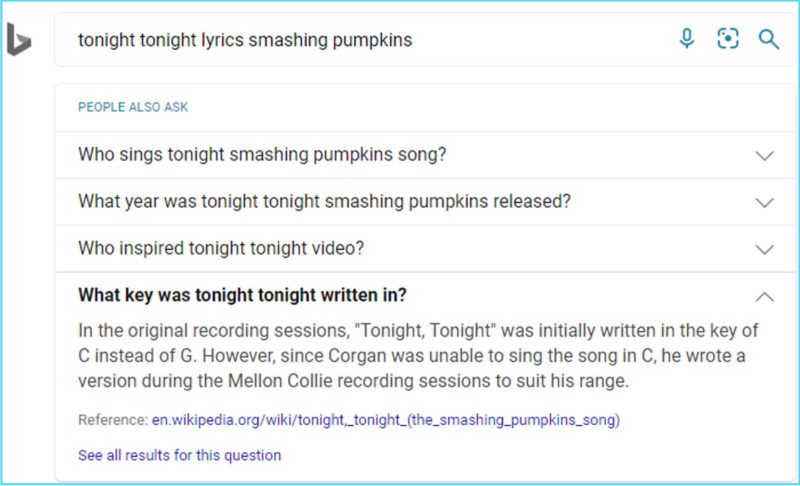Intelligent answers and semantic highlighting are also rolling out to more markets.
Real-time phrase suggestions. Bing’s automatically generated search suggestions now make use of Microsoft Turing Natural Language Generation (T-NLG) Next Phase Prediction to present full phrase suggestions in real-time. This expands the scope of autosuggestions, which may also improve the user experience.

In the example above, Bing suggests an entire word to complete the user’s query. As part of Microsoft’s AI at Scale initiative, the company has been building deep learning models that enable Bing to suggest queries on the fly. Previously, autosuggestions were constrained to information from previous queries asked by users and confined to the current word being typed.
Generating question-answer pairs for PAA. Bing is also using a generative model to identify question-answer pairs within documents. When those documents appear on the search results, it then uses the generated question-answer pairs to bolster the PAA box (in addition to data from similar questions that have previously been asked by users), as seen below.

Other features rollout globally thanks to AI language models. Using its Turing Universal Language Representation (T-ULR) model, Bing has also expanded its intelligent answers to over 100 languages.
Semantic highlighting, which presents relevant information from meta descriptions in search listings in bold text, can now identify and highlight answers in all languages as well. This feature was previously highly dependent on matching keywords within a search query, which was an issue when the query was presented in the form of a question.
Why we care. The improved PAA box and autosuggest features are two more examples of AI being applied to natural language processing and understanding on the search results page. As models are developed and improved, search engines will be able to better understand content and how it relates to a user’s query, and those improvements will be present within both the search listings as well as the features that populate the search results page.




